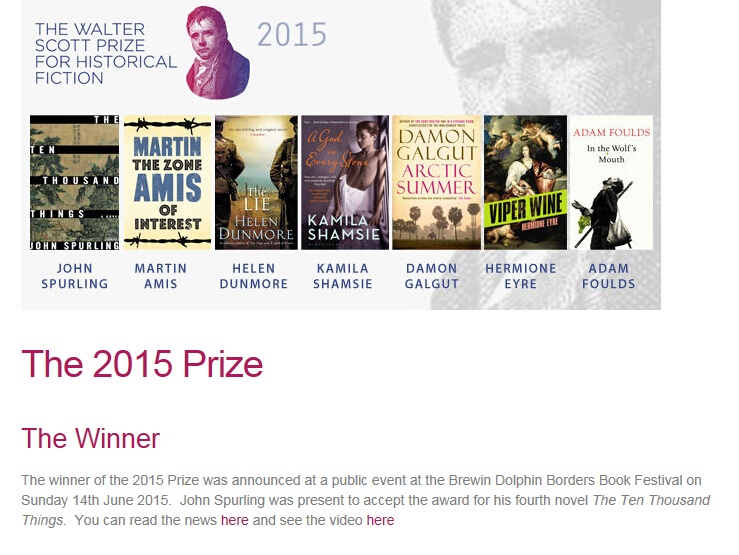
John Spurling has won the 2015 Walter Scott Prize for Historical Fiction for his fourth novel The Ten Thousand Things. The book is set in imperial China, during the 14th century. The Mongol founded Yuan Dynasty still rules China. The Mongols are still considered invaders and barbarians by the supporters of the Song dynasty. But a big change is coming soon.
The story is about one of the Yuan Dynasty's actual Four Masters, Wang Meng. Wang is a minor bureaucrat in the regime. He tries to focus mostly on his painting and intellectual pursuits to avoid thinking about the Kublai Khan-created dynasty. He travels the country to talk with the other great painters of the time, Huang Gongwang, Wu Zhen, and Ni Zan. Wang was the youngest of these great painters, but eventually became one of the Four Masters himself. On his journeys he meets fascinating characters and records his thoughts about a country in turmoil.
Wang Meng's art survived much turmoil and hangs in museums around the world. His story, set during a time of upheaval at the end of the Yuan Dynasty and the beginning of the Ming Dynasty, illustrates life during that time period and provides a wealth of information about the these influential Chinese painters.
Spurling was awarded the prize, which carries a cash prize of 25,000 pounds, by the Duke of Buccleuch at the Brewin Dolphin Borders Book Festival in Melrose, Scotland on June 13th. In his acceptance speech Spurling talked about age and the rejection writers face every day. He said, "I've also often said that I've been worried for young writers who win wonderful prizes early in their lives and then, having been told they are a genius, never really write anything again, because what does a genius write?"
He continued, "I've always thought I'd like my success to be in my 70s. It's rather later than that, I'm gong to be 79 next month. I've just made it in my 70s."
He thanked his agent David Marshall for submitting his manuscript 44 times only to get 44 rejections, and for persevering and submitting it one more time, when it was accepted for publication.
The award honors the father of the historical novel, Sir Walter Scott. It was founded in 2010 to recognize excellence in historical fiction published in the UK, Ireland or the Commonwealth. The majority of the book must be set at least 60 years in the past. Sponsors include the Duke and Duchess of Buccleuch, who are distantly related to Sir Walter Scott.
John Spurling is a writer, former BBC radio announcer and prolific playwright. He was the art critic at The New Statesman for twelve years. He is the author of the novels The Ragged End, After Zenda, and A Book of Liszts.